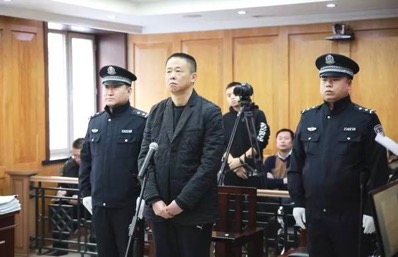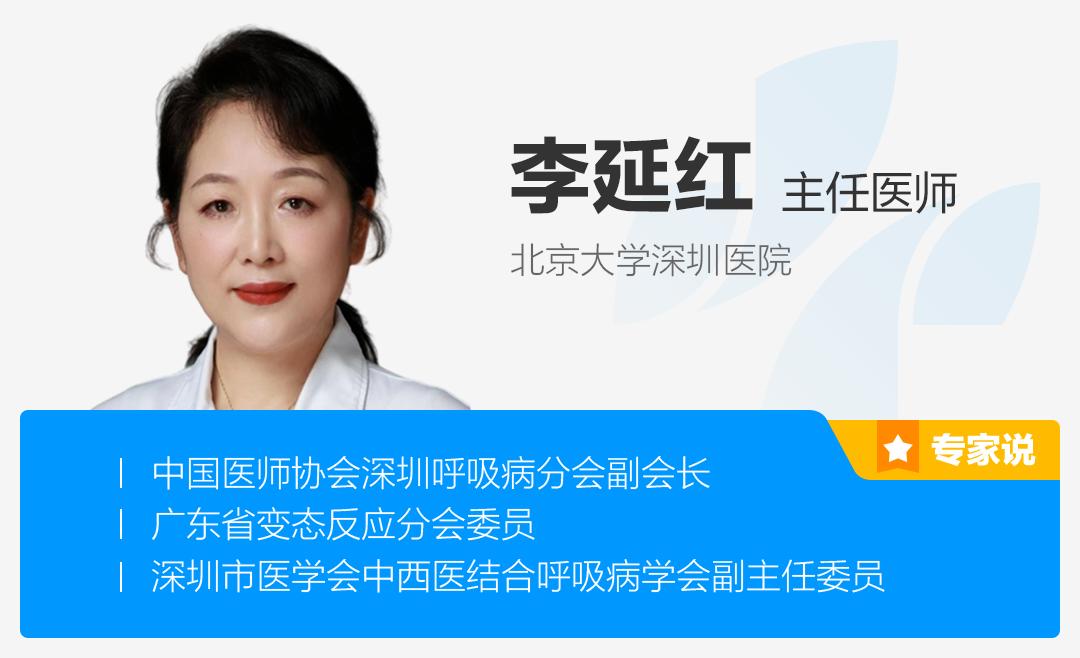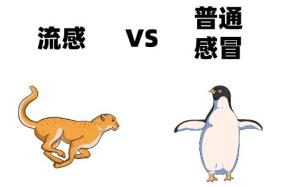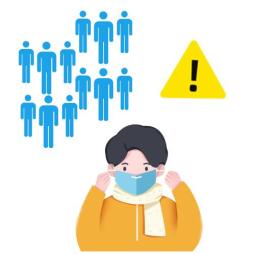() The operating comments of the Board of Directors in 2023 are as follows:
I. The industry in which the company is located during the reporting period.
(a) the company’s industry
1. Support policies have been introduced one after another, and outdoor sports industry has ushered in new opportunities for development.
In recent years, the state has paid more and more attention to the overall development of outdoor sports industry, and successively and intensively introduced a number of supporting industrial policies. In July 2023, the State Sports General Administration issued the Work Plan on Restoring and Expanding Sports Consumption. The plan points out that restoring and expanding sports consumption should be given priority, and puts forward three main measures: increasing the supply of high-quality sports products and services, enriching sports consumption scenes and consolidating the foundation of sports consumption. The promulgation of the "Program" is of special significance for the recovery of outdoor sports consumption. In October 2023, the National Development and Reform Commission, the State Sports General Administration and other departments issued the Action Plan for Promoting the Construction and Service Improvement of Outdoor Sports Facilities (2023-2025). The plan proposes that by 2025, the supply and demand of outdoor sports facilities construction and service quality will be effectively connected, the participation groups will be more extensive, the competition activities will be more abundant, the professional talent team will continue to grow, and the safety supervision policy system will be more sound. A number of outdoor sports development highlands with good development foundation, complete service guarantee, strong local characteristics and excellent supporting industries have been formed nationwide, and the total scale of outdoor sports industry has been promoted to 3 trillion yuan.
2. Outdoor sports groups tend to be younger, with strong consumption power and great communication influence.
The trend of rejuvenation of outdoor sports industry is a remarkable market phenomenon, which mainly benefits from young people’s pursuit of a healthy lifestyle and their desire to explore new things. The White Paper on Trend of Outdoor Sports Industry of Taobao Tmall in Spring and Summer of 2024 shows that young people aged 18-29 account for nearly 40% of the outdoor sports market, and consumers of this age group have become the backbone of the market. In addition, the spending power of young people in outdoor sports is also constantly improving. The White Paper on Sports Development of Young People in China in 2022 shows that the average annual consumption of young people in China is 7,237.6 yuan, of which 18.1% spend more than 10,000 yuan. This increase in consumption level reflects young people’s attention to outdoor sports and their willingness to invest in it.
As the main consumer in outdoor sports market, young people not only occupy an advantage in quantity, but also show a trend of youthfulness in consumption behavior and choice. Their participation and consumption behavior have played an important role in promoting the development of outdoor sports industry.
3. The outdoor industry is experiencing explosive growth, and the market potential is huge to be tapped.
With the popularity and diversification of outdoor sports, out shoes clothing and other related products have also ushered in a huge market demand. More and more consumers begin to pay attention to the functionality, comfort and fashion of outdoor products, which also brings more development opportunities for the outdoor products market. According to Hongze’s research data, in 2023, China’s out shoes clothing market has reached about 45 billion yuan, with a compound growth rate of nearly 20% in the past three years.
On the one hand, the popularity of outdoor activities, such as camping, skiing, hiking and mountaineering, has promoted the penetration rate of outdoor activities, attracted more and more participants, and brought a steady stream of consumer demand for outdoor products industry. On the other hand, the phenomenon of "breaking the circle" of out shoes clothing has also contributed. Its application scene is no longer limited to professional outdoor activities, but expanded to urban business and leisure areas. This change not only expanded the audience of out shoes clothing, but also further tapped the market potential. Under the joint action of these two factors, the high prosperity of outdoor products industry has been continuously improved, and the market potential of outdoor products has been further enhanced.
4. The consumer market continues to recover and rebound, and the market vitality continues to emerge.
According to the data of the National Bureau of Statistics, the total retail sales of social consumer goods in 2023 was 47,149.5 billion yuan, an increase of 7.2% over the previous year, and the scale reached a record high. According to the retail format, in 2023, the retail sales of physical stores above designated size increased by 5.0% compared with the previous year, among which the retail sales of convenience stores, department stores, specialty store and brand stores increased by 7.5%, 8.8%, 4.9% and 4.5% respectively. In 2024, as the national economy continues to pick up and improve, relevant policies to promote consumption will continue to be effective, new consumption formats and new models will be gradually cultivated and expanded, the income of urban and rural residents will continue to grow, and the expansion of the consumer market will be consolidated and enhanced.
(2) The market position of the company
Since its establishment, the company has been deeply involved in the outdoor sports industry and committed to the upgrading of the outdoor sports industry. The company develops, produces and distributes high-function professional outdoor sports goods, continuously cooperates with local governments and sports associations, and steadily lays out the comprehensive quality education section for parents and teenagers, which has formed a good reputation and brand reputation in the industry. It is a leader in the development of outdoor sports industry in China and has been rated as "National Sports Industry Demonstration Unit" by the State Sports General Administration.
II. Main businesses of the Company during the reporting period
(a) the main business of the company during the reporting period
The company’s main business is to develop and sell professional high-quality outdoor sporting goods, organize outdoor sports events, and build a comprehensive outdoor quality education experience platform for parents and teenagers. Through the integration of various business sectors, it provides consumers with all-round products and services, encourages and helps people to go outdoors, exercise healthily, and fully practices the life concept of harmonious coexistence between man and nature.
During the reporting period, the company completed the acquisition of the 100% equity project of Shanghai Feiwa Trading Co., Ltd., which specializes in the distribution and agency of high-end hiking shoes brands and owns the exclusive agency of Italian handmade shoes CRISPI in China, obtained the exclusive sales and operation agency of HOUDINI, a representative brand of Nordic outdoor aesthetics, signed a joint venture agreement with Klttermusen AB, and completed the relevant registration procedures of the joint venture company in March 2024.
In 2023, the company achieved an operating income of 846.4 million yuan, a year-on-year increase of 50.51%; The total profit was 31,377,800 yuan, a year-on-year increase of 192.68%; Among them, the net profit attributable to shareholders of listed companies was 36,534,000 yuan, a year-on-year increase of 210.91%. By the end of 2023, the total assets of the company were 1,105,053,600 yuan, and the net assets attributable to shareholders were 688,769,500 yuan.
1. Focus on building the brand matrix of "own+exclusive agent" and complete the transformation from channel operation to brand operation.
(1) Focusing on the brand positioning of X-BIONIC sports black technology, we will continue to deepen the product design and development, channel development and construction, marketing promotion and membership system development of X-BIONIC.
"X" stands for technology, creativity, future and infinite possibilities, "BIONIC" stands for bionic technology, and X-BIONIC embodies the spirit of exploration, technology and passionate movement for dreams.
During the reporting period, the company focused on X-BIONIC’s own brand operation business, integrating R&D, design, commissioned processing, channel construction, marketing and sales, and met different types of consumer demand through the channels directly operated by the company, such as shopping malls, ski resorts, outdoor multi-brands, multi-category collection stores, traditional and emerging e-commerce platforms and live broadcasts.
The company continues to intensify research and development, adheres to the concept of combining X-BIONIC technology functionality with advanced fashion sense, and perfects and enriches various product lines based on product application scenarios. On the basis of the existing close-fitting products representing the professional height of the industry, the product R&D team continues to launch professional outdoor and functional business products, and has established in-depth partnership with international high-quality fabric suppliers such as GORE-TEX, Schoeller, Polartec, Pertex, Primaloft, Allied Feather and Down, etc., to jointly design and produce various functional products. Including all kinds of hard-shell jackets, soft-shell suits with different thicknesses, cotton-padded jacket, water-repellent down jackets, snowboarding suits, snowboarding suits, business jackets, business down jackets, business three-in-one down jackets, business down coats and other high-value products, as well as various trench coats, jackets, long and short T-shirts, sweaters, various hiking pants, business pants, running pants and other excellent products suitable for sale in spring, summer and autumn, covering outdoor climbing and hiking. Among them, the soft shell category with Schoeller soft shell material as the core has won special praise from users and great attention from the market, which has established the height of the soft shell industry that "not all soft shells are called Schoeller". At present, the category of X-BIONIC products has been basically completed and constantly optimized.
In 2023, the company opened six X-BIONIC brand stores in Beijing DT51, Shenzhen Vientiane City, Changchun Vientiane City, Beijing Badaling Ole, Beijing SKP and Beijing Shi Jinglong Ski Resort respectively. By December 2023, X-BIONIC had opened 22 single-brand stores (including 10 shopping malls and 12 ski shops) and 30 outdoor channel brand stores (including 28 Sanfu comprehensive stores)
X-BIONIC sponsors outdoor sports events and athletes by holding a number of brand and membership activities, and helps brand development in different fields. Invite champion users such as Xu Mengtao, Olympic champion of freestyle aerial skills, and Wang Xindi, world champion of freestyle aerial skills, to come to X-BIONIC Beijing SKP Winter Store to participate in Valentine’s Day activities, attracting many stars and sports bloggers to take photos and punch in the store to help X-BIONIC offline channel marketing; X-BIONIC Hangzhou flagship store and Changchun Vientiane City store opened, and invited international supermodel He Sui and short track speed skating Olympic champion Ren Ziwei to attend the opening ceremony and offline publicity activities respectively; The title is Chongli International Triathlon Challenge and the 24th Sanfu International Triathlon; Sponsored cross-country runners Wang Xun and Tony chen, and won the men’s and women’s championships in the 168 km group of the 2023 Suzaku 168 Super Cross-country Race respectively; Sponsored EMBA-A teams from cheung kong graduate school of business and China Europe International Business School to participate in the Gobi Challenge of Xuanzang Road, and won the Ge 17 championship and Ge 18 championship respectively; To pay tribute to the 70th anniversary of the first human summit of Mount Everest, X-BIONIC sponsored two female mountaineers, Gu Xiaoxi (the first person in Chongqing to reach the north slope of Mount Everest) and ISA, to successfully reach the top of Mount Everest, the world’s highest peak, in May 2023. Cooperate with Richie Jen, Kenny Lin, Jane Zhang, Jeff Chang Shin-Che, Zhang Lanxin, Zhao Lina, Huang Xiaolei, He Chong and many other stars and champions to publicize the brand. During the reporting period, we cooperated with more than 200 sports and fashionistas.Promote and plant grass for products on platforms such as Xiaohongshu and Tik Tok, and continuously deepen the brand power of X-BIONIC.
Establish and improve the X-BIONIC brand operation team, including commodity department, exhibition department, training department, member marketing department, brand store sales management department, etc., to achieve refined operation management; At the same time, according to the different business districts and customers, we will implement differentiated and precise operations to improve store efficiency and service; The store display image is presented according to the quarterly theme and product style planning. Through the design of quarterly props and the monthly store display guidelines, the offline image is improved and unified management; Continuously improve the overall training framework and content, cover employees at all levels with the help of online platform, and improve the service level and customer experience of the store; We have carried out many interactive activities such as skiing, cross-country running and city running, which has increased the stickiness of members and the recognition of products. During the reporting period, X-BIONIC recruited 23,000 new members, accounting for 90% of member sales.
In 2023, X-BIONIC achieved an operating income of 214,861,600 yuan, a year-on-year increase of 69.36%.
(2) National exclusive agency brand
The exclusive agency brands in China include Italian handmade shoes and boots brand CRISPI, Swedish classic brand Klattermusen, Nordic outdoor aesthetics representative brand HOUDINI, classic tooling shoes and boots brand DANNER, tactical backpack brand Mystery Ranch and professional out shoes brand LA SPORTIVA.
1) Italian handmade ingenuity inherits the brand CRISPI of shoes and boots.
CRISPI shoes adhere to the traditional Italian hand-made shoe-making technology, combining modern technology and Italy’s unique fashion taste. After entering the China market for 16 years, it has won the favor of the vast number of consumers in China with its "comfortable running-in" experience.
During the reporting period, the company closely communicated with CRISPI brand, cooperated in new product research and development, adhered to CRISPI’s unique DNA, combined Italian handcrafted ingenuity with new shoemaking technology, and combined functionality, high quality and fashion sense with a full understanding of the China market. Based on product application scenarios and different usage scenarios of China consumers, the company improved the product line matrix and launched diversified exclusive and first-time high-quality products from China. Including MONACO retro version, MONACO low top, MONACO Martin boots, etc., the categories cover hiking, outdoor, fashion wear, sports and other scenes.
In 2023, the company developed the CRISPI brand vision system and the use standard, completed the upgrading of 12 CRISPI brand image zones in the company’s multi-brand and multi-category comprehensive stores, and cooperated with 6 dealers to complete the upgrading of CRISPI brand image zones simultaneously.
In terms of marketing, in addition to continuing the successful market operation mode in the past, we have conducted in-depth cooperation with many KOLs, professional, fashion media and outdoor mainstream media, and combined brand professionalism with fashion trends. The content of official account of CRISPI brand has been upgraded, which has more brand depth and tonality, increased the stickiness of fans, greatly increased the brand exposure in bilibili, Xiaohongshu, Tik Tok and other major platforms, and continuously expanded the brand volume.
In 2023, CRISPI achieved an operating income of 79.77 million yuan, a year-on-year increase of 97%.
2) Swedish classic brand Klattermusen
During the reporting period, the Swedish classic brand Klattermusen performed brilliantly, with three single-brand stores and one pop-up shop in Hangzhou Tower, Shanghai Kerry, Beijing Guomao and Shenzhen Vientiane World Pop-up respectively. Continue brand exposure on social media platforms such as bilibili, Xiaohongshu and Tik Tok, and cooperate with many KOLs to promote and increase brand exposure and search popularity. Xiaohongshu, Tik Tok, WeChat WeChat official account and Weibo achieved double-digit growth, and opened Xiaohongshu Store and WeChat applet store, with the number of Xiaohongshu fans reaching 15,000.
In 2023, Klattermusen realized an operating income of 117.33 million yuan, a year-on-year increase of 188%.
3) HOUDINI, the representative brand of Nordic outdoor aesthetics.
HOUDINI brand is committed to the concept of environmental protection, and the research and development of environmental protection technology fabrics has set a benchmark in the environmental protection field of functional outdoor clothing; Creating a product recycling economy model has won consumers’ recognition of the long-term value of HOUDINI products; The leading design concept of HOUDINI brand is different from the unique competitive advantages of other brands, emphasizing the philosophy of harmonious coexistence with nature. The product pursues minimalist design, adopts advanced and low-key Mo Landi color system, and is loved by many female consumers.
In July 2023, the company and Houdini Sportswear AB Company formally signed the Exclusive Agency Agreement. In October, the first store of HOUDINI brand area image in China settled in Shanghai Sanfu Wanti Store, and then quickly opened HOUDINI brand area in Beijing Sanfu Xiangyun Town Store, Beijing Sanfu Madian Middle Store and Qingdao Sanfu Aofan Center Store, and in the second half of 2023, HOUDINI Tmall Flagship Store, HOUDINI JD.COM Flagship Store, Houdini Sports Outdoor Tik Tok Flagship Store and Houdini Outdoor Tik Tok Flagship Store were opened. In terms of wholesale, in 2023, we opened two HOUDINI brand area images in cooperation with distributors, and started to prepare the first self-operated China brand store of HOUDINI Shopping Mall, constantly expanding and improving the sales channels of HOUDINI brand.
During the reporting period, HOUDINI and Polartec China held a business opening event, which successfully created a loud momentum for HOUDINI to enter China, conducted in-depth cooperation with many KOL, professional and fashion media and outdoor professional media, combined brand professionalism with fashion trends, greatly increased brand exposure in bilibili, Xiaohongshu, Tik Tok and other platforms, and continued to expand brand voice.
DANNER, the classic American tooling shoes and boots brand exclusively represented by the company, represents the brand spirit of courage, tenacity and freedom, and is committed to providing customers with the best products with high-quality fabrics and techniques, which is the core of Danner’s 90-year inheritance and enduring; MYSTERY RANCH, the global leading brand of heavy backpacks, has won unanimous praise from the market and backpack users for its powerful backpack system, durable quality and unique design. LA SPORTIVA, a professional out shoes brand, is considered as a brand specially born for mountain sports, which is mainly suitable for technical mountain sports such as high altitude mountaineering, alpine climbing, rock climbing, skiing mountaineering and cross-country running. At present, DANNER, MYSTERY RANCH and LA SPORTIVA are mainly sold through e-commerce platforms such as Tmall, JD.COM and Tik Tok, and their product attention continues to increase and maintain steady development.
2. Actively adjust the layout of sales channels, rapidly expand the sales business of emerging e-commerce platforms, optimize the product structure of multi-brand and multi-category chain retail channels, and promote the image updating and upgrading of offline retail stores.
During the reporting period, the company actively adjusted the distribution of sales channels according to the changes of public consumption habits, focused on Tik Tok, Xiaohongshu and other emerging e-commerce platforms to create a traffic matrix, set up new multi-brand and multi-category comprehensive flagship stores in Xiangyun Town, Beijing, Lilac Town, Shenyang and Xinguang Tiandi, and built a single-brand collection store in Hangzhou Ping An Financial Center. (1) Through the combination of retail channels, it provided consumers with more convenient goods supply and optimized the shopping experience.
The company attaches great importance to the business presentation of emerging e-commerce platforms, with outstanding results in the layout presentation of platforms such as Tik Tok, WeChat applet, Xiaohongshu and Aauto Quicker. It has successively opened and operated a number of live broadcast channels such as Sanfu outdoor franchise store, CRISPI official flagship store, klattermusen sports flagship store in mountain rat, HOUDINI sports outdoor flagship store, X-BIONIC sports outdoor flagship store, DANNER official flagship store, mysterious farm official flagship store, LA SPORTIVA outdoor flagship store, etc. The operation mode and services tend to be mature, and the performance continues to grow steadily. Adhering to the concept of "striving to provide users with quality products and worry-free services", the company’s online operation team actively improves the quality of online business, optimizes e-commerce related workflows, including page design, user pre-sales and after-sales services, logistics and distribution, and makes every effort to enhance users’ shopping experience in the whole process of selection, purchase and after-sales.
In 2023, the number of public outdoor customers increased, mainly taking camping, light hiking, cross-country running, go on road trip and other outdoor activities, and these activities showed a continuous growth trend. In view of the demand of these products, the company increased the stocking of suitable products, increased the exhibition area of stores, and optimized and increased competitive brands, aiming at providing one-stop shopping service for outdoor sports enthusiasts.
In the post-Winter Olympics era, ice and snow sports and ice and snow tourism continue to heat up. The company has opened 12 ski resorts in Beijing, Chongli, Jilin, Xinjiang and other high-quality ski resorts, with a full range of goods, including (single and double) snowboards, anchors, snowshoes, helmets, snow goggles, snow clothes and protective gear. And according to the needs of skiers, we constantly introduce new products, such as fast-wearing fixer, gloves with palm protection, XRD protective gear, shadow stone 360 and other products. Some ski resorts provide members with services such as storing snowboards, repairing and maintaining snowboards, and provide convenience for members.
Offline stores attach importance to community activities and word-of-mouth marketing. In 2023, 183 community activities were organized, including hiking, camping, city running, cross-country running, CITY WALK, rock climbing and store sharing sessions. The number of offline retail members increased by 44,386, an increase of 43.6% compared with 2022. As of December 31, 2023, the total number of store members was 381,000, accounting for 82% of sales, an increase of 21% compared with 2022. The repurchase rate of members was 40.22%, an increase of 9% compared with 2022. The number of old members accounted for 52.9%, the number of new members accounted for 47.1%, the sales of old members accounted for 59.7%, and the sales of new members accounted for 40.3%.
3. Quality-oriented construction of outdoor sports events.
During the reporting period, the Sanfu event was dominated by its own boutique event IP, and continued to focus on triathlon and cross-country running. The X-BIONIC 2023 Chongli International Triathlon Challenge, the X-BIONIC 2023 China-Beijing-Tianjin-Hebei Triathlon and the 24th Sanfu Triathlon, the "Growth Medal" Little Triathlon Beijing Station and Xiamen Station, and the 2023 Dajingmen Ancient Great Wall Cross-country Race and adidas TERREX 2023 were successfully held. These events have attracted athletes and participants from all over the world, especially the Chongli 168 Super Cross-country Race. The race routes are specially designed according to the local natural environment, historical sites and cultural heritage, which is a combination of sports, culture and tourism. From 2,000 contestants in the first session to nearly 10,000 contestants this time, the total number of applicants exceeded 50,000 in seven years, which indirectly affected the participation of nearly one million people. Now it has become one of the largest, largest and most influential outdoor sports events with mass participation in North China and even the whole country, and was rated as the 2023 boutique event by Hebei Provincial Sports Bureau, which enhanced the company’s popularity and brand influence. In terms of competition organization, Sanfu competition pays more attention to the management process and details, strengthens the training of volunteers and staff, improves the overall service quality while ensuring the smooth competition process, and ensures the safety of contestants and spectators during the competition.Provide participants with a better competition experience; Form strategic cooperation with many media such as Little Red Book and Weibo to expand the exposure and influence of the event. Combined with the trend of cultural and creative works, the cultural and creative and public welfare products developed for the event activities have also been well received by the majority of participating enthusiasts and outdoor sports enthusiasts.
During the reporting period, Sanfu Group Construction continued to deepen the field of high-end outdoor group construction of enterprises, seized the hot period of traveling group construction, and successively reached cooperation with Didi Chuxing, () and other companies. Combined with the current outdoor craze and exquisite lifestyle, we will formulate a new outdoor group building plan for our customers. Throughout the year, many projects were successfully held, such as 100-person desert Gobi hiking group building, 1,000-person camping family carnival day, and high-end customized travel group building. At the same time, combined with the current consumption concept of the crowd, the Beijing-Tianjin-Hebei small-scale enterprise group building was launched, and more than 200 group building projects such as "Olympus Fun Games", "Sanyuan and Warriors Challenge" and "Learning to Think Ten Thousand Meters" were successfully held, with more than 20,000 service enterprises, which was recognized and widely praised by the majority of corporate customers and industrial organizations.
Beijing Sanfu International Dream Travel Agency, a wholly-owned subsidiary of the company, is responsible for the business of the activity department, undertakes the qualification training of outdoor tour leaders in chinese mountaineering association, and has hundreds of contracted tour leaders with outdoor qualifications all over the country. The business scope is mainly in Beijing, Chengdu and Shanghai, and at the same time, it recruits outdoor travel enthusiasts nationwide through online travel. During the reporting period, the activity department mainly took mountain outdoor travel as the carrier and some stores as the support, received more than 7,000 outdoor travel enthusiasts and released nearly 100 outdoor travel routes. Activities such as the New Year’s Eve in Wulanbutong, 300km cycling around Hainan Island, hiking on Wugong Mountain, and crossing the snow valley and snow country in Northeast China are highly praised by outdoor travelers. Sanfu outdoor activities are not only the choice of healthy lifestyle for outdoor travel enthusiasts, but also the messenger of green ideas. In the activities, we advocate and adhere to the principle of non-trace Shan Ye: do not use disposable goods, reduce garbage generation and take it all out of Shan Ye, reduce the impact on nature, and let outdoor enthusiasts re-understand the relationship between man and nature. Sanfu Activity Department, as one of the "departments closest to users", actively undertakes the responsibility of equipment recommendation officer. The product experience, feedback collection, experience in using outdoor products, knowledge popularization and other related exchanges of the company are widely spread in the activity community every day, which has made positive contributions to promoting the company’s brand, enhancing customer stickiness and improving the company’s products and services.
4. Steady operation of comprehensive outdoor quality education for parents and teenagers.
During the reporting period, the company smoothly operated the comprehensive quality education business of "Squirrel Tribe Parent-child Outdoor Paradise+Eagle Safety Education and Training +SANFO HOOD Wild Luxury Camp+Sanfu Little Warrior".
Facing the fierce competition in the parent-child market, Shanghai Xile constantly seeks new breakthrough directions, and renews some original projects in different parks of "Squirrel Tribe". According to the actual situation, different parks introduce new projects such as glass water slide, go-karting, wooden house camp and scarecrow art festival, which brings diversity and rich experience to the products of "Squirrel Tribe". At the same time, thanks to the support of domestic youth quality education policies, the marketing promotion of "Squirrel Tribe" on traffic platforms such as Tik Tok and Xiaohongshu, and the renewal iteration of park projects, the number of visitors to the park increased significantly in 2023. Chengdu, Wuhan, Zhengzhou and Nanjing received a total of 601,200 tourists, up 25% year-on-year. However, bad weather (heavy rain in Wuhan and Nanjing), low-price competition and other market environments have also brought adverse operational impacts to the parks.
Guizhou Eagle focuses on safety education, focusing on "making 300 million children safer" and creating "a place where all ages 0-99 need to study", and actively upgrades its brand and business. During the reporting period, Guizhou Yingji applied for and obtained two national utility model patent certificates of "Half-body Aviation Training Warehouse for Emergency Escape" and "An Emergency Escape Training Inclined Building" certified by China National Intellectual Property Administration; Hosting the "Sichuan and Guizhou Emergency Safety Education (Base) Development Forum" and establishing the Eagle Safety Education Research Institute, won the title of National Research Travel Base, the qualification of Guizhou Provincial Sports Tourism Demonstration Base, and the "Top Ten Pioneer Projects Award of Global Emergency Industry" and other qualification awards, which provided strong professional support for the subsequent research and development of related courses in the field of safety education and the re-optimization of the curriculum system. He has participated in many projects, such as the symposium on the mid-term evaluation report of the implementation of the national "14th Five-Year Plan" youth sports development plan and the on-the-spot investigation and investigation in Guangzhou enterprise base, which has enhanced the confidence and mission of the company’s employees, stimulated their enthusiasm and innovation, improved their personal professional knowledge and skills, and supported business development and development. In 2023, Eagle Safety Education completed 230 safety trainings and drills, with 70,056 person-times, an increase of 56% compared with 2022.
During the reporting period, SANFO HOOD focused on the "camp+"operation mode, and newly established two boutique campsites, "Wild Camp" and "Plant and Planet Camp" in Beijing and Chengdu, respectively, combining camping with group building, scenic spots, Internet, farms, food and other activities to empower the brand. Committed to the quality education for young people, Sanfu Little Warrior cooperated with Chengdu Luhu Scenic Area for a brand-new upgraded version of children’s outdoor activities, and completed a good result of more than 1,000 families participating in a single event; The SANFO HOOD Wild Camp, which landed at the Beijing station of Sanfu Little Warriors, pioneered the concept of camping+competition, built a complete ecological chain of outdoor entertainment for users, and focused on users’ participation experience, which was well received by parents and families in Beijing. In 2023, the Sanfu Youth League was extended to the Youth Military Summer Camp/Winter Camp project. With mature systematic operation experience, new media matrix marketing methods and upgrading the inherent parent-child private domain traffic, nearly 1,000 groups of young families were successfully signed up to participate.
5. Build an intelligent logistics supply chain system
During the reporting period, in order to meet the rapidly growing demand for self-owned brand stocking, e-commerce and offline store delivery, Sanfu Supply Chain built an industry-leading digital warehouse by introducing advanced warehousing technology and equipment, providing important infrastructure and omni-channel supply chain services for all brands, departments and subsidiaries, realizing fast, safe and efficient transportation of goods, reducing inventory costs and brand operation costs, improving customer satisfaction, etc., thus promoting the development and competitiveness of all brands of the company.
Through the above business segments, the company provides consumers with all-round products and services, builds an outdoor ecological platform with business users as the core, links people with outdoor brands, people with outdoor products, people with outdoor sports and people with outdoor education, and realizes customer group transformation among multiple segments, thus building a complete internal and external cycle of outdoor industry.
(B) Analysis of business information of retail industry
1. Store operation
By the end of the reporting period, the company had opened 54 professional outdoor products chain stores in 17 cities, including Beijing, Shanghai, Nanjing, Hangzhou, Chengdu, Shenzhen, Shenyang, Changchun, Qingdao, Shijiazhuang, Suzhou, Wuxi, Zhangjiakou, Dalian, Jilin, Tonghua and Altay, with a total area of about 21,000 square meters.
(1) Distribution of stores at the end of the reporting period
Description: Ski shops in the above table refer to X-BIONIC single-brand shops opened in ski resorts.
(2) During the reporting period, the situation of the top 10 stores with sales revenue.
(3) Store business income
In 2023, the company’s store business income was 417,065,900 yuan, accounting for 49.28% of the company’s operating income.
(4) Store changes
1) Opening new stores
2) Close the store
(5) Store efficiency information of comparable stores during the reporting period.
1) Comparable stores refer to stores with comparable sales data for the same period in 2022 and 2023.
2) The above does not include closing stores in 2023.
3) Floor efficiency refers to the sales per square meter of business area during the reporting period.
2. On-line sales during the reporting period
During the reporting period, the company’s transaction volume on third-party online e-commerce platforms such as Tmall, JD.COM, Tik Tok and Micro Mall was RMB581,144,400, and its operating income was RMB325,856,300. Among them, thanks to the rapid development of interest e-commerce platform, the sales growth rate in Tik Tok is obvious. In 2022, the company official website linked the online sales to the third-party e-commerce platform where the company was located, and stopped selling.
3. Procurement during the reporting period
(1) Supply situation of the top five suppliers in each commodity category
(2) Inventory management policy
In terms of inventory management, the company has applied ERP invoicing management and WMS warehousing management system, which can know the inventory situation in real time, and the data of goods warehousing, warehousing and distribution, sales outbound and end-of-season inventory can be reflected in real time, and the sales and inventory data of various stores in the country and the inventory structure of various categories can be obtained at any time from the system; The company’s R&D department, product department and operation department will formulate the safety inventory of each category, and arrange the replenishment quantity in time when it is out of stock, so as to ensure the continuous supply of sales demand and avoid the stagnation of goods.
(3) the policy of dealing with unsalable and expired goods.
For unsalable goods, the company will take the form of opening outlet stores, big promotions in spring, summer or late autumn and winter, temporary sales, e-commerce platform channels, micro-malls and other forms for sale according to different situations; For expired goods, the shelf life management regulations shall be strictly followed, and the principle of first-in-first-out shall be guaranteed. For temporary goods, measures such as returning to manufacturers and bundling promotion shall be taken, and expired goods shall be destroyed and included in the loss.
As for the impairment provision policy, it shall be measured at the lower of cost and net realizable value on the balance sheet date. If the inventory cost is higher than its net realizable value, provision for inventory depreciation shall be made and included in the current profit and loss. On the balance sheet date, if the factors influencing the previous write-down of inventory value have disappeared, the write-down amount will be restored, and it will be reversed within the amount of the original provision for inventory depreciation, and the reversed amount will be included in the current profit and loss.
4. Warehousing and logistics during the reporting period
The company has a supply chain company, with Suqian, Jiangsu and Sanhe, Hebei as the main storage and logistics bases, which are used to quickly turn around and store the full range of goods sold by the company’s own brands and agents, including outdoor clothing, shoes and socks, equipment and so on. The goods purchased by the company or the products commissioned for processing and production are first sent to the warehouse logistics base, and then transported to the store or the place designated by the customer through the third-party logistics company or the company’s logistics vehicles. During the reporting period, the warehousing expenditure was 2,624,200 yuan, and the logistics expenditure was 8,491,300 yuan, of which the self-owned logistics expenditure accounted for 1.64% and the outsourcing logistics expenditure accounted for 98.36%.
5. Own brand
During the reporting period, the company’s own brand business income was 253,399,200 yuan, accounting for 32.74% of the company’s main business income. Among them, the business income of X-BIONIC products was 214,861,600 yuan, up 69.36% year-on-year.
Third, the core competitiveness analysis
(A) the acquisition and operation of sports black technology brand X-BIONIC brought huge development space
X-BIONIC has been widely recognized by many professional athletes in the world for its powerful black technology attributes. "X" stands for technology, creativity, future and infinite possibilities, "BIONIC" stands for bionic technology, and X-BIONIC embodies the spirit of exploration, technology and passionate movement for dreams. After acquiring the ownership of "X-BIONIC" and "X-SOCKS" brands in China, the company absorbed and integrated its advanced technology, accepted the popularity and reputation of its international brands, combined with international and domestic R&D and production capacity adapted to the market, and closely cooperated with major international suppliers of high-quality raw materials, relying on the company’s accumulation in the outdoor sporting goods industry for many years, achieving brand development, which brought huge development space for the company’s production and operation.
(2) A complete outdoor industrial operation platform.
By developing and selling high-quality outdoor sporting goods, organizing outdoor activities and organizing group construction, and building operators and linkers of parent-child and adolescent comprehensive outdoor quality education business segments, the company builds an outdoor ecological platform with operating users as the core, linking people with outdoor brands, outdoor products, outdoor sports and outdoor education, and realizing customer group transformation among different segments, thus building a complete outdoor industrial operation platform.
(3) Outdoor multi-brand and all-category product structure
Since its establishment in 1997, the company, as one of the early enterprises engaged in outdoor industry, has been deeply involved in the industry, established a lasting and stable cooperative relationship with hundreds of outdoor brands at home and abroad, understood the core advantages and applicable situations of different brands, different categories and different products, and formed a deep insight and understanding of product characteristics, thus providing professional and personalized product selection suggestions for different consumers in different scenarios and serving the user groups in depth. At present, the company has its own brands such as X- BIONIC, X-SOCKS, SANFO PLUS, ANEMAQEN, SANFO, KIDSANFO, etc. It is the exclusive agent of CRISPI, Houdini, Danner, Mystery Ranch and LA SPORTIVA classic international outdoor brands, and distributes 300+ outdoor famous brands with more than 8,000 SKUs. The product categories cover outdoor sports, daily business and leisure, etc. Some core brands are as follows:
(D) Strong R&D capability of its own brand.
With more than 20 years’ working experience and in-depth understanding of products and customers, the company has successively established a number of self-owned brands such as ANEMAQEN, SANFO, KIDSANFO, SANFO PLUS, etc., and has the ownership of IP China such as "X-BIONIC" and "X-SOCKS". The design R&D team consists of designers, pattern designers, material developers and other professionals, focusing on the control of key links such as pattern design, process optimization and production quality control. Focus on target market segmentation and diversified product design direction, constantly reform and innovate in fabric selection and functionality, and combine high-quality materials with advanced technology to empower sports and achieve a more comfortable, reassuring and cool brand experience.
At present, the company has established in-depth cooperative business relations with international high-quality functional fabric companies including GORE-TEX, Schoeller, Polartec, Pertex, Primaloft, Allied, etc., which has laid a solid foundation for new product R&D, production and supply chain. Since the private brand products have been put into the market, they have gained a good market reputation, and the company’s core competitiveness and gross profit margin will be strongly guaranteed.
(E) All-round distribution of sales channels
The company has an independent team for expanding stores and a comprehensive evaluation system for opening stores. Combined with historical successful experience and business data, it evaluates and considers the region, consumption power, passenger flow, location, cost, return on investment and other aspects, scientifically calculates and deduces the profit model, selects excellent solutions, and strives to ensure the profitability of physical stores. Through offline channel coverage, online business development, group procurement promotion, event linkage and other means, we will comprehensively broaden sales channels and achieve online and offline coordinated development, which has strong industry influence in the professional outdoor field.
(six) professional experience in organizing sports events and league building activities.
Sports management subsidiary has been focusing on the promotion and popularization of professional outdoor sports for many years, and has won the title of chinese mountaineering association Demonstration Club and AAA outdoor sports club qualification for many years. It is a member of China Triathlon Association, Marathon Committee of China Athletics Association and International Cross-country Running Association. With the competition as the engine, the company is committed to leading Chinese people to develop a good outdoor sports lifestyle. At present, it has become a professional competition operation organization with large scale and strong technical strength in China, and its business ability is at the leading level in China from organization planning, route survey to guarantee implementation. The types of events cover daily training, entry-level events and long-distance super events, and there are many events with international brand influence such as Sanfu Triathlon and Chongli 168. The company has been fully recognized by members, contestants and outdoor sports enthusiasts in the event, and members have the characteristics of strong stability and high loyalty.
The skill training subsidiary focuses on the in-depth development of enterprise group building business and occupies a leading position in the field of outdoor training for enterprises. After more than ten years of industry accumulation, a high-quality coach team composed of many professional senior coaches has been deposited, including many star coaches with national professional qualification certificates, more than ten years of experience and tens of thousands of training experiences. And has established a deep cooperative relationship with many high-quality camp resources with unique outdoor entertainment attributes. After more than ten years of deep cultivation and business expansion, the company’s customer resources have covered more than 20 industries, including the Internet, technology and finance, including dozens of Fortune 500 companies, listed companies and emerging Internet technology companies. High-quality customer resources, long-term strategic cooperation, strong faculty and all-round enterprise services have won a stable market share for the company and continued to drive business growth.
(seven) mature parent-child adolescent quality education project operation management system.
Shanghai Xile Subsidiary is the main operator of "Squirrel Tribe". After years of exploration and practice in outdoor sports, entertainment and education, it has taken the lead in establishing a standardized operation management process and curriculum research and development system in the industry, and has a strong first-Mover advantage in product design, management concept, safety awareness and daily protection. "Squirrel Tribe" has its own brand IP image, and radiates clothing, picture books, courses and other related fields. By optimizing iterations, it enhances IP influence, systematically exports management service capabilities to the industry through joining, and enhances the radiation radius of IP regions.
Eagle Sports Subsidiary owns the brand of "Eagle Safety Education", focusing on youth safety education, integrating diversified contents such as earthquake prevention and disaster reduction, self-care and self-rescue, popular science safety, youth safety education and training, etc. It can simulate various disaster sites to carry out various forms of skills training such as disaster prevention and mitigation, emergency rescue and emergency rescue, and enhance the self-help and self-care ability of young people in emergencies through experiential training. It has profound experience and mature operation mode in the youth safety quality education industry. The outdoor safety base for disaster prevention and reduction in Yingji, Guizhou invested by Yingji Sports, has been awarded many honorary titles by Seismological Bureau of China, governments at all levels and superior units, such as National Popular Science Education Base for Earthquake Prevention and Reduction, Publicity and Education Base for Disaster Prevention and Reduction in Guizhou Province, Publicity Base for Popular Science Education in Guizhou Province, and Training Base for Youth Self-care and Self-help in Guizhou Province.
By continuously expanding the quality education program for teenagers, the company has become one of the representative enterprises in the field of outdoor unpowered sports, natural history exploration and safety education.
(8) High-quality and stable membership groups
The company always adheres to the service tenet of "customer first", pays attention to the construction of customer information system, uses CRM customer relationship management system, integrates online and offline multi-channel resources, and carries out unified membership service and management. Actively cultivate new members, firmly maintain old members, increase value and optimize members’ rights and interests, and improve viscosity and repurchase rate; Establish accurate expansion of user portrait analysis needs; Provide timely and high-quality pre-sale, in-sale and after-sale services, pay attention to satisfaction feedback and follow up to enhance interaction; A loyal and stable membership base will help drive channel traffic and performance growth.
(nine) high industry visibility and reputation.
The mission of the company is to "encourage and help people to go outdoors, exercise healthily, and fully practice the life concept of harmonious coexistence between man and nature", and always adhere to the business concept of "honest management-guarantee after-sales" to provide consumers with multi-brand and all-category products. At the same time, in order to ensure the quality of service, the company has always adhered to the strategy of opening stores directly, and has established standardized management processes in product selection, store display, customer reception, professional explanation, inventory management, after-sales service, etc., fundamentally ensuring the unity and quality of foreign services. The company pays attention to establishing close cooperative relations with upstream and downstream enterprises and competent departments in the industrial chain, strictly fulfills commercial contracts, abides by business rules and business ethics, and has formed a good reputation and influence in the industry.
In recent years, the company has won many awards, including typical enterprises of the Ministry of Commerce, high-tech enterprises in Zhongguancun, AAA-rated enterprises in Beijing, enterprises founded by Beijing Chengxin, demonstration units of Beijing sports industry, members of Beijing Zhongguancun Enterprise Credit Promotion Association, top 100 private enterprises in Beijing, top 100 small and medium-sized private enterprises in Beijing, pioneer of civilized units and workers in Xicheng District, and "100 most influential credit enterprises" in Zhongguancun Credit Cultivation Double Hundred Project. And ISO9001 quality management system certification, ISO14001 environmental management system certification, GB/T28001 occupational health and safety management system certification, etc.
IV. Prospects for the future development of the company
(A) the industry pattern and development trend
1. Policies to support industry development
In recent years, the state has issued a series of policies to support the development of outdoor sports industry, fully recognizing the important role of outdoor sports industry in promoting the development of national economy.
In March, 2022, the general offices of the General Office of the Central Committee of the CPC and the State Council issued the Opinions on Building a Higher Level Public Service System for National Fitness, which clearly stated that it is necessary to build a multi-level and diversified sports event system, vigorously promote the development of outdoor sports, make a good plan for the development of outdoor sports industry, build a "three verticals and four horizontals" spatial layout of outdoor sports, and launch a pilot project to open natural resources to outdoor sports. The promulgation of the "Opinions" will further promote the substantial expansion of outdoor sports space for Chinese people and the promotion of outdoor sports duration.
In July 2022, the General Office of the State Sports General Administration, the General Office of the Ministry of Education and the General Office of the Development and Reform Commission issued the Notice on Improving the After-school Service Level of School Physical Education and Promoting the Healthy Growth of Primary and Secondary School Students, guiding and supporting professional forces such as sports schools and sports clubs to enter the campus to carry out after-school sports services, promoting the implementation of the "double reduction" policy, and promoting the healthy growth of young people through various efforts.
In November 2022, the Ministry of Culture and Tourism, the Central Civilization Office, the Development and Reform Commission and other 14 departments jointly issued the Guiding Opinions on Promoting the Healthy and Orderly Development of Camping Tourism and Leisure, proposing to promote the construction of public camps, expand the scale of public camps, improve service quality, encourage and support the standardized construction of operating camps, and improve the quality of camping products.
In November 2022, the State Sports General Administration, the Development and Reform Commission and the Ministry of Natural Resources jointly issued the Outdoor Sports Industry Development Plan (2022-2025). According to the Plan, by 2025, the high-quality development of outdoor sports industry will achieve remarkable results, basically forming a development pattern of effective docking of supply and demand, coordinated development of industry and ecology, prominent brand of products and services, and continuous innovation of formats and models. Outdoor sports venues and facilities continue to increase, the popularity is greatly improved, and the number of participants is increasing. The total scale of outdoor sports industry exceeds 3 trillion yuan.
In October 2023, the National Development and Reform Commission, the General Administration of Sports, the Ministry of Natural Resources, the Ministry of Water Resources, National Forestry and Grassland Administration and other departments issued the Action Plan for Promoting the Construction and Service Improvement of Outdoor Sports Facilities (2023-2025). The plan aims to meet the people’s growing demand for outdoor sports, improve the construction and service quality of outdoor sports facilities, and promote the high-quality development of outdoor sports industry. According to the plan, by 2025, the outdoor sports facilities in China will continue to increase, the construction of outdoor sports facilities and the supply and demand of service quality will be effectively connected, and the total scale of outdoor sports industry will reach 3 trillion yuan.
2. General situation and trend of industry development
Outdoor sports industry contains a wide range of connotations. In a narrow sense, outdoor sports refer to leisure activities in natural or semi-natural environments, including camping, outdoor adventure, cycling, mountaineering, skiing, self-driving cross-country and so on. In a broad sense, outdoor sports are more like a lifestyle, with elements of fitness, tourism, sports, entertainment and leisure.
According to CCTV financial data, the number of people who regularly participate in physical exercise in China has exceeded 500 million, which fully proves the public’s enthusiasm and pursuit for healthy living and outdoor sports. According to the data of China Sports Daily, by the end of 2021, the number of people participating in outdoor sports in China has exceeded 400 million, and the trend of popularization, age-old and lightweight has emerged. Different kinds of outdoor sports such as mountaineering, rock climbing, hiking, cycling, ice and snow, camping, adventure, water and aviation have emerged in an endless stream, and the activity scenes have gradually extended, which is popular among young people with the characteristics of novelty, fun, low participation threshold and social attributes.
According to the "2023 Outdoor Life Trend Report" published by Xiaohongshu, outdoor sports have gradually integrated into people’s daily lives and become a universal lifestyle. From January to October 2023, the daily activities of outdoor users increased by more than 100% month-on-month, showing the strong growth momentum of outdoor sports.
Under the influence of the rising participation rate of outdoor activities, the market scale of outdoor products in China is expanding. In 2022, the market scale of outdoor products industry in China is about 197.1 billion yuan, and it is estimated that the market scale of outdoor products industry in China will further grow to 240 billion yuan in 2025.
At present, China’s outdoor industry shows a rapid growth trend in many aspects, including the explosive growth of various outdoor activities, the expansion of market scale, the increase of facilities construction, the popularization of education and the maturity of sports events.
(II) The company’s future development plan
1. Stick to the brand development strategy, focus on brand operation, build organizational structure and team around each brand, and promote the success of each brand operation.
At present, the company has laid out its own brand+domestic exclusive agent brand operation business, and the transformation from previous channel operation to brand operation has basically been completed. X-BIONIC, CRISPI, HOUDINI, Klattermusen, DANNER, Mystery Ranch and LA SPORTIVA are all developing rapidly according to the company’s overall strategic plan. In the future, the company will adhere to the brand development strategy, focus on the X-BIONIC brand, build an operational organizational structure around each brand, and carry out brand operation from brand positioning, product research and development, brand marketing, channel construction, membership system and other aspects to enhance the popularity and influence of each brand and increase market share.
2. Combining with emerging consumption habits, create a new mode of three-dimensional channel operation.
The rise of emerging e-commerce platforms has broken the traditional consumption pattern, and the live push consumption habit has taken shape. The company will combine the emerging consumption habits, radiate omni-channels through short video+live broadcast+social media, continuously improve the awareness and market popularity of all brands, and expand the time and space scope of all brand products. Under the line, we will rapidly expand single-brand stores in high-end shopping malls and business districts, steadily build interesting and experiential multi-brand and multi-category comprehensive stores, and quickly establish a distribution cooperation system; Ski shops are the layout of outdoor sub-industries. The company has opened a number of ski shops mainly selling X-BIONIC products in Beijing, Chongli, Jilin, Tonghua, Xinjiang and Chengdu, and will continue to open ski shops in many high-quality indoor and outdoor ski resorts in the future to continuously expand the market share of X-BIONIC products in the ski circle.
3. Build a comprehensive outdoor quality experience education platform for parents and teenagers with mobile internet thinking.
The company is committed to building a comprehensive quality education platform for parents and teenagers of all ages, which integrates entertainment experience, sports training, safety education, natural history education and outdoor skills training. With mobile internet thinking, it combines artificial intelligence, virtual technology, digital operation and other technologies to establish an advanced internet outdoor education system, linking interesting quality education games with parent-child paradise and rich professional safety education and research courses. Encourage young people to strengthen their bodies in nature, explore themselves, discover the world, enhance their leadership, master survival skills and safety knowledge, and comprehensively help parents and young people grow up healthily.
(3) The company’s business plan
In 2024, the theme of the company’s operation is brand operation, and the company’s organizational structure is greatly adjusted around brand operation, and various brand operation divisions and core operation teams are established. X-BIONIC, CRISPI, HOUDINI, KLattermusen, DANNER, Mystery Ranch and LA SPORTIVA realize the diversification of sales channels through the combination of offline, online and live broadcast, the combination of self-operated wholesale channels and the combination of single-brand stores and multi-product stores, and continuously expand the product strength, brand strength and channel strength of each brand, so as to enhance the company’s comprehensive competitiveness and continuously promote business development.
1. Complete the organizational structure adjustment of each brand operation, and each brand can operate independently.
2. Focus on functional textile frontier technologies such as technological material innovation and process innovation, strengthen the construction of product design and development team, and constantly explore, so as to continuously inject the vitality of technological innovation into the future development of X-BIONIC brand.
3. On the basis of successful product planning, X-Bionic continues to iteratively improve and optimize products. Focus on continuous investment in professional outdoor and functional business series, especially for key categories such as close-fitting layer, soft shell, hard shell and functional trousers, and vigorously develop and promote them.
4. Sponsor Zhang Shupeng, the first Asian winged fighter and paraglider world champion, to challenge the extreme sports of flying over Mount Everest; Named the 25th Sanfu International Triathlon, sponsored cheung kong graduate school of business, China Europe International Business School and other famous business schools to participate in the 19th Xuanzang Road Gobi Challenge; Set up X-BIONIC cross-country running team to participate in major cross-country running events around the world; In-depth cooperation with stars who love outdoor sports, create high-quality video content communication brands, and expand the brand power of X-BIONIC.
5. Continue to increase investment in live broadcast platform, introduce AI technology and virtual reality technology, etc., to enhance users’ online shopping experience.
6. Open about 10 X-BIONIC single-brand stores, 2-3 HOUDINI single-brand stores, 1-2 CRISPI single-brand stores and 1-2 multi-brand and multi-category Sanfu comprehensive stores.
7. Expand the distribution channels of brands, increase the market exposure of brands, and expand the market influence of brands.
8. Create an online outdoor comprehensive quality education platform on the Internet. Through creative outdoor activities, interesting game forms and systematic reward mechanism, encourage and help young people to keep fit in nature, explore themselves, discover the world, enhance their leadership, master survival skills and safety common sense. Through online and offline linkage, the company’s nature park will be built into a leading demonstration camp of comprehensive outdoor education system, providing one-stop solutions for physical fitness training, natural history exploration, survival skills and safety science training.
(4) Possible risks
1. Consumer market volatility risk
At present, the domestic outdoor products consumption market is generally improving, but affected by the overall consumption environment, the uncertainty of the consumer market may have an adverse impact on the company’s operation.
Countermeasures: Carry out all work around the annual business plan, promote omni-channel integrated development, control costs, control investment in non-main business areas, and minimize the impact of market environment fluctuations.
2. The risk that the company’s operation falls short of expectations
In 2024, the company will rebuild its organizational structure and team around the brand operation, which will bring a transitional period, and there is a risk that the operation will be less than expected.
Countermeasures: stick to the brand operation theme focusing on X-BIONIC brand, focus on resources, continuously improve products, channels, markets and users, and strive to achieve the success of X-BIONIC brand and the overall brand operation of the company.

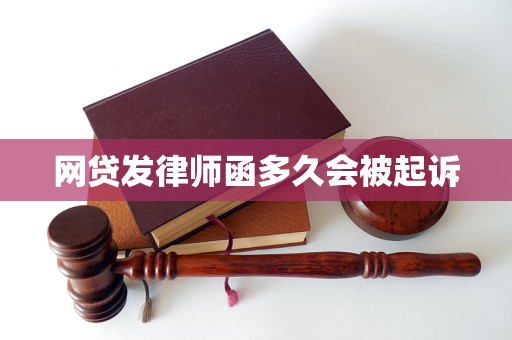
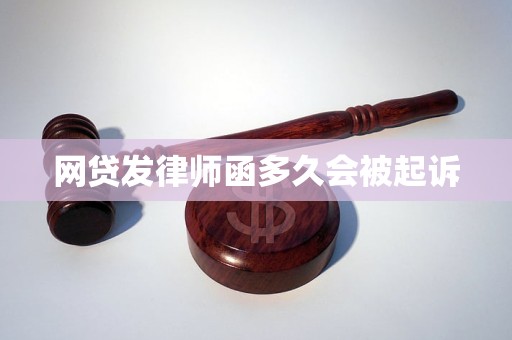

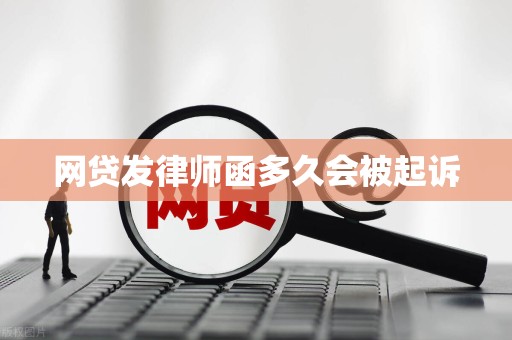






















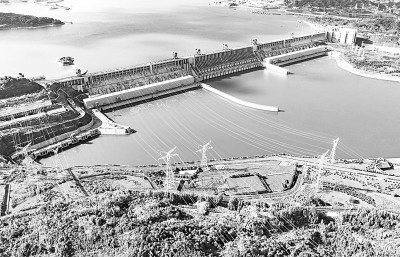
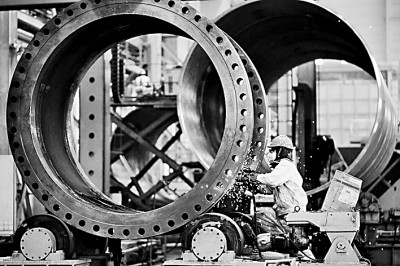
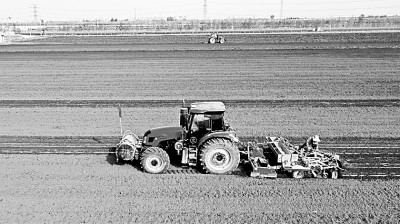
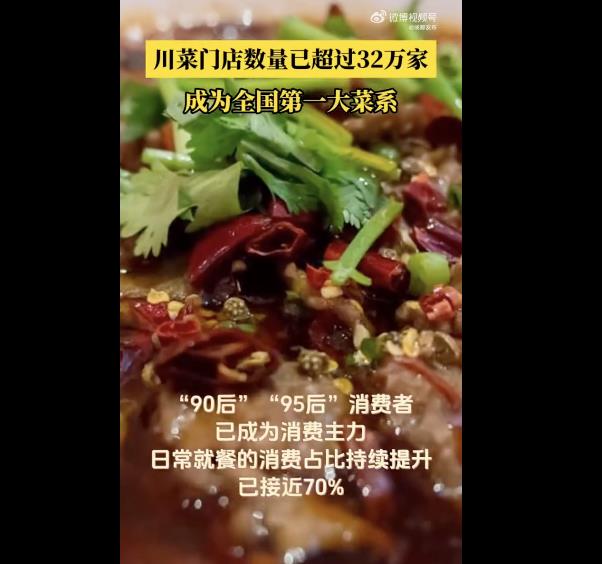 Introduction of eight Chinese cuisines;
Introduction of eight Chinese cuisines;